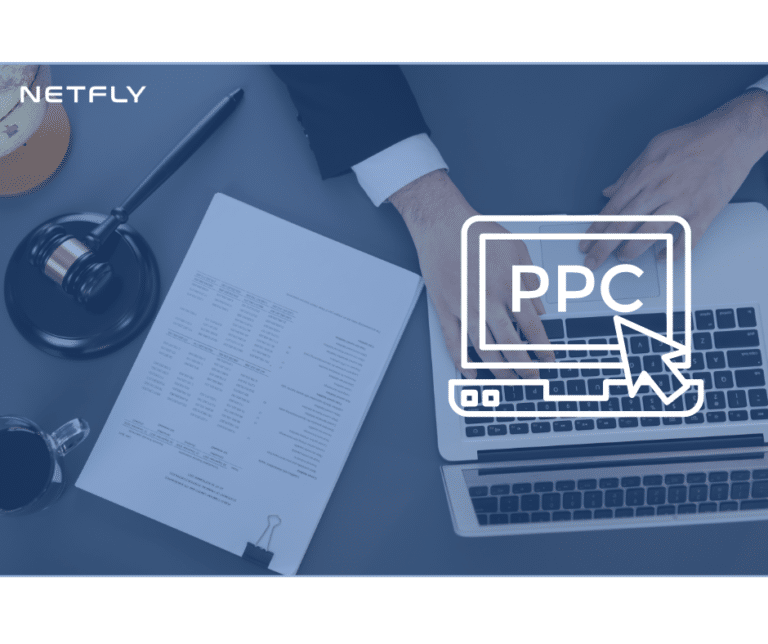To master social media marketing for your law practice, begin by understanding the unique demographics of each platform—LinkedIn for professionals, Instagram and Facebook for broader audiences. Craft engaging content like visuals, videos, and interactive polls to boost engagement. Establish a strong brand presence through consistent identity and authentic engagement. Leverage paid advertising effectively by targeting specific demographics and creating custom audiences. Engage directly with your audience through interactive sessions and personalized responses. Analyze key metrics for continuous improvement and consider influencer partnerships for amplified reach. Nurturing client relationships with relevant updates and exclusive content is key. Your success playbook awaits with strategies that will elevate your social media game.
Key Takeaways
- Tailor social media posts to specific platforms for targeted reach.
- Utilize visual storytelling through videos, images, and infographics.
- Maintain consistent brand identity across all social media channels.
- Engage with audience through interactive content and live sessions.
- Analyze data for campaign optimization and continuous improvement.
Understanding Social Media Platforms
When delving into the world of social media marketing for your law practice, it is essential to grasp the nuances of various platforms to effectively engage with your audience. Understanding the targeting demographics and platform algorithms is pivotal for optimizing your social media presence. Different platforms cater to different demographics, so knowing your target audience is key. For instance, LinkedIn is popular among professionals and can be great for B2B marketing, while platforms like Instagram and Facebook are more versatile and can reach a wider audience.
Each platform has its own unique algorithms that determine what content users see on their feeds. By understanding these algorithms, you can tailor your posts to increase visibility and engagement. For example, Facebook’s algorithm prioritizes content that sparks conversations and interactions among users. Knowing this, you can create posts that encourage comments and shares to boost your reach.
Crafting Engaging Content
To captivate and connect with your audience on social media, crafting engaging content is essential for your law practice’s success. Visual storytelling is a powerful tool that can help convey complex legal information in a visually appealing and easy-to-understand manner. Consider using infographics, videos, and images to tell stories, share tips, or provide updates on legal matters. These visual elements can make your content more engaging and shareable, increasing your reach and impact.
Interactive polls are another effective way to boost engagement with your audience. Encourage participation by asking questions related to legal topics, current events, or even fun facts. Polls not only create a sense of community and interaction but also provide valuable insights into your audience’s preferences and interests. You can use these insights to tailor your content strategy and deliver more relevant and compelling information to your followers.
Building a Strong Brand Presence
To establish a strong brand presence for your law practice in the competitive world of social media, it is vital to convey a consistent and cohesive image that resonates with your target audience. Your brand identity should be clear across all platforms, reflecting your values, expertise, and unique selling points. Consistency in visual elements, tone of voice, and messaging helps build trust and recognition among your followers.
Managing your online reputation is essential in shaping how potential clients perceive your practice. Monitor reviews, respond promptly to feedback, and showcase positive testimonials to enhance credibility. Engage with your audience authentically, demonstrating transparency and professionalism in all interactions.
Leveraging Paid Advertising
Harnessing the power of paid advertising can propel your law practice to new heights of visibility and client acquisition. When utilizing paid advertising on social media platforms, it is important to focus on budget optimization to make sure that your marketing dollars are being used effectively. By monitoring and adjusting your ad spend based on performance data, you can maximize the impact of your campaigns while staying within your financial limits.
Targeting strategies play a vital role in the success of your paid advertising efforts. By defining specific demographics, interests, and behaviors of your ideal clients, you can tailor your ads to reach the right audience effectively. Utilize tools provided by social media platforms to create custom audiences and lookalike audiences to expand your reach and increase the likelihood of converting viewers into clients.
Engaging With Your Audience
Maximizing the impact of your paid advertising efforts goes beyond simply running campaigns; it involves actively engaging with your audience to foster meaningful connections and drive conversions. To enhance engagement, consider incorporating interactive polls into your social media strategy. Polls not only encourage audience participation but also provide valuable insights into their preferences and opinions. This interactive approach shows your audience that their voices are heard and valued, fostering a sense of community around your law practice.
Furthermore, hosting live Q&A sessions can be a powerful tool for engaging with your audience in real-time. By addressing their questions and concerns directly, you demonstrate transparency, expertise, and a commitment to client communication. Live Q&A sessions humanize your practice, making it more relatable and trustworthy in the eyes of your audience.
Incorporating interactive polls and live Q&A sessions into your social media marketing strategy can help you build stronger connections with your audience, increase brand loyalty, and ultimately drive conversions for your law practice.
Utilizing Analytics for Insights
Utilizing analytics for insights is an important aspect of optimizing your social media marketing strategy for your law practice. Making data-driven decisions is vital for understanding the performance of your campaigns and guaranteeing their effectiveness. By utilizing measurement tools like Google Analytics or social media platform insights, you can track key metrics such as engagement rates, click-through rates, and audience demographics.
Performance tracking allows you to gauge the success of your social media efforts and identify areas for improvement. Analyzing this data provides valuable insights into what content resonates with your audience, which platforms are most effective, and when to post for maximum engagement.
Campaign optimization is another key benefit of leveraging analytics. By monitoring the performance of your campaigns in real-time, you can make necessary adjustments to guarantee they are meeting your goals. Whether it’s refining your content strategy, adjusting your posting schedule, or targeting a different audience segment, analytics empower you to continuously improve and refine your social media marketing efforts for your law practice.
Implementing Influencer Partnerships
Implementing influencer partnerships can significantly enhance your law practice’s social media marketing strategy. When choosing influencers to partner with, consider individuals who align with your practice area and values. Search for influencers whose audience demographics align with your target clientele to guarantee effective reach. Once you’ve identified potential influencers, focus on partnership negotiation. Clearly outline expectations, deliverables, and compensation to establish a mutually beneficial agreement. Confirm that the influencer’s content is authentic and complies with legal advertising guidelines to maintain credibility. Collaborate on creative ideas that resonate with both the influencer’s audience and your brand messaging. Regularly monitor the partnership’s performance through analytics to track engagement and ROI. By strategically selecting influencers and cultivating strong partnerships through effective negotiation, you can leverage their reach and credibility to amplify your law practice’s online presence and attract potential clients.
Nurturing Client Relationships
To further solidify your law practice’s success in the digital domain, it is imperative to prioritize nurturing client relationships. Client retention is key in the legal industry, and building strong relationships with your clients can lead to repeat business and referrals. Utilizing social media platforms to engage with your clients can significantly enhance these relationships. Interact with them by responding to comments, sharing valuable legal insights, and showcasing testimonials from satisfied clients.
Relationship building is a continuous process that requires attentiveness and personalized communication. Use social media to stay connected with your clients even after their legal matters are resolved. Share relevant updates, legal tips, and industry news to maintain their interest and trust in your services. Additionally, consider creating exclusive content or hosting virtual events for your clients to add value to their experience with your law practice.
Frequently Asked Questions
Can Social Media Marketing Replace Traditional Marketing Strategies?
Yes, social media marketing can effectively replace traditional marketing strategies due to its wider reach, cost-effectiveness, and ability to target specific demographics. Embracing this shift can enhance your brand’s visibility and engagement with potential clients.
How Can I Protect My Law Practice From Negative Online Reviews?
To protect your law practice from negative online reviews, prioritize reputation management. Enhance your online presence with client testimonials. Develop a proactive response strategy to address criticism promptly and professionally. Monitoring feedback is essential for maintaining a positive image.
Is It Necessary to Hire a Professional Photographer for Social Media Content?
Want your social media to stand out? Consider DIY photography for authentic content. While professional photographers offer expertise, stock images can be cost-effective. Balance quality and budget to create engaging posts that resonate with your audience.
What Are the Key Differences Between Organic and Paid Social Media Strategies?
When considering organic versus paid social media strategies, focus on engagement strategies. Organically, build relationships through content and interactions. Alternatively, paid strategies involve budget allocation to boost visibility and reach targeted audiences efficiently. Both approaches play pivotal roles in a thorough social media marketing plan.
How Can I Handle Negative Comments or Feedback on Social Media Professionally?
When faced with negative comments on social media, handle them professionally to protect your online reputation. Engage respectfully, address concerns promptly, and offer solutions publicly or privately. Utilize crisis management strategies to turn feedback into opportunities for improvement and showcasing your professionalism.
Conclusion
As you continue to master social media marketing for your law practice, remember that success is not just a coincidence. By understanding the platforms, crafting engaging content, building a strong brand presence, and leveraging paid advertising, you are setting yourself up for success. Engaging with your audience, utilizing analytics, implementing influencer partnerships, and nurturing client relationships will further elevate your practice. Keep up the great work and watch your online presence flourish!










